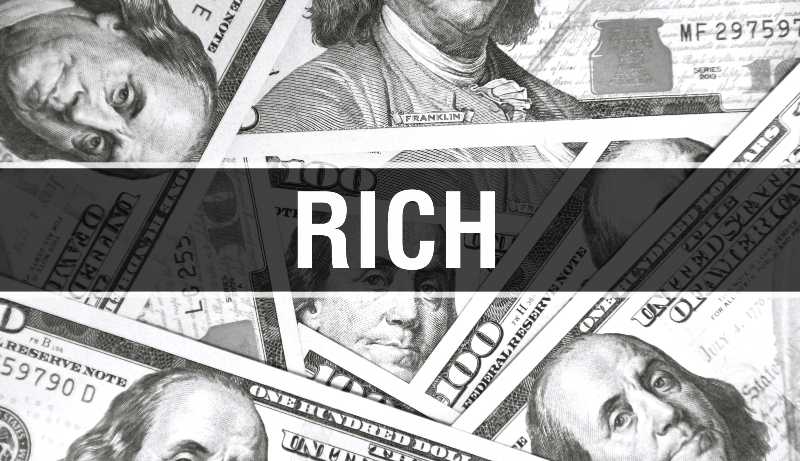Markets
Top 10% Of Wealthiest Americans Own 89% Of All US Stocks

The top 10% of the wealthiest Americans hold 89% of all US stocks. By itself, this isn’t news anymore. However, it does show how far the stock markets have gone in increasing the wealth inequality among Americans.
RELATED: Wealthiest Americans Owe $163 Billion Yearly In Taxes
Pandemic Made Wealthiest Americans Wealthier

During the COVID-19 pandemic, the top 1% of the wealthiest Americans gained more than $6.5 trillion in market value. This consisted of gains in corporate equities and mutual fund wealth.
In contrast, the bottom 90% of Americans managed to generate $1.2 trillion in wealth. This is according to the latest data from the Federal Reserve.
In particular, the share of corporate equities and mutual funds owned by the top 10% reached a record high of 89%.
Meanwhile, the bottom 90% of Americans held about 11% of individually owned stocks. This is down by 1% prior to the pandemic.
They Own A Lot, We Own A Little
Steven Rosenthal is a senior fellow at the Urban-Brookings Tax Policy Center. He said the wealth gap is still increasing despite the pandemic.
“The top 1% own a lot of stock; the rest of us own a little,” he said. The wealthiest 1% owns 54% of stocks and mutual fund shares.
In particular, the market was close to doubling its value since the March 2020 crash. Now, it's up by 40% since January 2020. As a result, the US stock market became the main source of wealth creation in the US since the pandemic.
Consequently, it’s also the main driver of wealth imbalance. According to Fed data, the top 1% ‘s total wealth is now 32%, a record. Around 70% of their wealth gains came from stocks.
The Democratization of Stocks
Surprisingly, the wealthiest Americans still managed to increase their wealth even as millions of new investors rushed the market.
The availability of trading apps combined with working from home and stimulus checks encouraged many to take on the market. T
rading app Robinhood reported adding more than 10 million new accounts over the past two years. Now, it has over 22 million, many held by first-time investors.
However, the wealth the market generated stayed with the wealthiest Americans. Despite their numerical superiority, their total investments remain insignificantly small.
For example, the average Robinhood account size is around $4,500. Even if the markets deliver huge gains, payouts for these smaller accounts won't compare to investors betting hundreds of millions of dollars.
In addition, these investors joined the game too late. “Many of the younger investors also bought in at higher prices, compared to bigger investors who have been in the market for years and see larger gains,” Rosenthal said.
Quick Gains
In addition, the new, smaller investors are more likely obsessed with making the quick buck. They often display the trading mentality of buying and selling quickly as they cash in quick gains.
While they may produce gains, they won’t match the returns made by large investors who buy then hold for a long time.
As a result, the top 10% of the wealthiest Americans saw their stocks’ value rise by 43% between January last year to June 2021.
Meanwhile, the bottom 90% registered a lower growth rate for their stocks at 33%. “They might account for a larger share of trading activity, but that’s different from ownership and wealth,” Rosenthal observed.
Watch the Earn Your Leisure video discussing that the rich own 89% of stocks and stock picks:
How long have you been trading in the stock market? Do you hold on to stocks long-term for bigger payouts, or do you buy and sell quickly for quicker but lower gains?
Let us know what you think. Share your comments in the comments section below.















